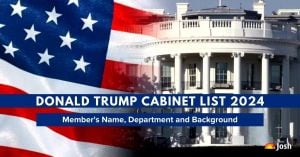Debates surrounding the U.S. government's stance on the blockade of Gaza have intensified following the U.S. State Department's recent endorsement of Israel's actions, particularly pertaining to food aid restrictions. Grabbed headlines around the world, this position has fueled considerable alarm and outrage among human rights groups and international observers.
On November 12, 2024, the State Department issued its assessment, resulting in the startling conclusion: Israel's withholding of food to Gaza does not violate international human rights laws. This ruling has sparked fresh criticism, with accusations of the U.S. effectively sanctioning what has been termed Israel's policy of starvation, deemed by many as collective punishment.
A close inspection of U.S. legislation highlights inherent contradictions; laws like Sections 502B and 620I of the Foreign Assistance Act, along with Leahy Law’s provisions, prohibit military aid to nations deemed to have committed gross human rights violations. Yet, the National Security Memorandum (NSM-20) released under the Biden administration emphasizes maintaining alliances with foreign partners, even when they flout international humanitarian standards.
The sequence of events leading to this controversial endorsement began when U.S. Secretary of State Antony Blinken and Secretary of Defense Lloyd Austin conveyed their grave concerns to the Israeli government. Their letter, sent on October 13, warned of dire consequences should Israel fail to ramp up food provisions for Gaza, generating public scrutiny over the U.S.'s role and responsibilities.
The demand was explicit: allow at least 350 trucks filled with food aid to flow daily to Gaza. Yet, stark statistics reveal the yawning gap between political rhetoric and reality—only 400 trucks managed to enter Gaza throughout the entire month.
Compounding this tragedy, reports from international rights organizations paint a dire picture of the humanitarian crisis. Disturbingly, estimates suggest between 50,000 to 75,000 civilians remain trapped under Israeli military plans, now classified as enemies, facing starvation and violence. Earlier press coverage, including insights from CNN, suggested Israeli officials openly adopted strategies of food deprivation for the northern regions of Gaza, treating civilians within as combatants.
From the State Department's perspective, assertions made by spokesman Vedant Patel left no room for ambiguity: there was no assessment of Israel infringing upon U.S. or international laws. This assessment implicitly normalized Israel's policies, aligning the Biden administration with methods condemned globally.
The reality of Gaza's situation paints a grim narrative, with the United Nations reporting continuous carnage. Data acquired from Gaza's health authorities indicated between 5-12 November alone, 274 Palestinians were killed and upwards of 729 injured. Cumulatively, the toll since the escalation began is chilling, with over 43,000 dead and as many as 103,000 wounded since early October.
This silence from the White House and the tacit endorsement of Israel's actions raise troubling questions about human rights commitments by one of the world's leading democracies. Former high-ranking military officials and political commentators argue the U.S.'s passive approval of such policies not only sets grim precedents for future warfare but also dangerously legitimizes potential domestic repressions against dissenters. Would such justifications for state actions filter down within U.S. borders?
Critics argue this shift sends alarming signals about the future of international humanitarian norms. U.S. commitments to uphold rights and safeguard vulnerable populations are now heavily clouded under the guise of strategic alliances, sparking fears they may serve as instruments of political power and control rather than agents of moral responsibility.
Indignation among international bodies and human rights activists remains palpable. Calls for accountability echo loudly, with demands for the U.S. to consult its own laws when providing military support to Israel, especially as the Arab and Muslim world watches closely. The public sentiment is mixed, with growing anti-war movements and calls to halt military aid—protests are erupting not just at home but across the globe.
The intersection of humanitarian crises and political machinations offers insights not only about the current geo-political climate but also raises pressing ethical dilemmas. It prompts the question of morality in foreign policy: Can the U.S. remain loyal to its allies when such loyalty entails overlooking blatant human rights abuses? The developments continue to incite debate, reflecting the delicate balance between national interests and global humanitarian obligations.
Discussions surrounding Gaza will command attention for the foreseeable future, confronting the values of democracy and human rights against the backdrop of unyielding political realities. The situation is fluid, and the consequences of these decisions are bound to resonate far beyond the immediate conflict, testing not just international law but also the resilience and moral compass of the global community.
The extent of starvation and the suffering noted by various humanitarian agencies calls for global intervention and commitment to international humane standards, prompting solid arguments against U.S. military support under these circumstances. These emergences press for dialogue and action from the U.S. government as accusations of complicity through silence loom large.



